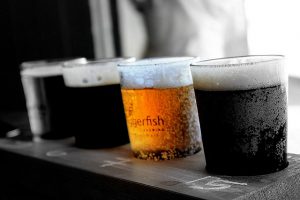Addiction to alcohol affects millions of Americans and their families each year. Research has uncovered 15 million people struggle with alcoholism, and only about 8 percent of them get the help and treatment they need.
Addiction to alcohol is also commonly referred to as alcoholism or alcohol use disorder and can span several categories of mental disorders, including mood, anxiety, psychotic, sleep, sexual, delirious, amnestic, and dementia disorders.
Fortunately, treatment does exist. At Discovery Place we provide a number of different addiction recovery and rehabilitation programs for an affordable cost. We understand that addiction doesn’t take breaks, which is why our counselors are available by phone 24/7 to provide the answers you need to get started on your recovery today.
Determining if Your Family Member Has a Drinking Problem
 Alcohol abuse frequents movie screens, television shows, social media, and even music. Unfortunately, it is often misconstrued and portrayed poorly. This causes people to misunderstand the disease and thus, in turn, offer poor attempts to manage and treat it. The following is a list of signs or behaviors that can help you determine if your loved one has a drinking problem:
Alcohol abuse frequents movie screens, television shows, social media, and even music. Unfortunately, it is often misconstrued and portrayed poorly. This causes people to misunderstand the disease and thus, in turn, offer poor attempts to manage and treat it. The following is a list of signs or behaviors that can help you determine if your loved one has a drinking problem:
- They excessively consume alcohol despite negative impacts.
- They binge drink or drink heavily (consume more than four or five drinks in a two hour period).
- They continue to drink even when it negatively affects their health.
- Alcohol causes them to routinely miss work, school, or other obligations.
- Alcohol makes them angry or violent.
- They make unsafe decisions due to excessive alcohol consumption.
- Alcohol disrupts relationships with family and/or friends.
- Alcohol use causes them to become isolated, avoiding family and/or friends.
If a loved one is emitting any of these signs or behaviors, they may have been suffering from alcohol abuse. Although, a lot of the symptoms are similar to addiction, or alcoholism, at this stage they will be able to go days, weeks, or even months without drinking. If your loved one is unable to go even a small period of time without consuming alcohol they may suffer from alcohol addiction.
What Should I Do if I Believe My Loved One is Addiction to Alcohol?
If you have read the above warning signs and behaviors and feel that your loved one is physically addicted to drinking, you may be able to help them still. With the right alcohol recovery treatment, they will be able to obtain sustained sobriety.
The first step is always to sit down and have a mature conversation with a loved one you are worried about. It is possible that they know they have a problem and would like to change, but simply don’t know where to start. If you have had a conversation and are still unsure of what to do, the following is a list of suggestions on how to deal with an alcoholic family member:
- Educate yourself about alcoholism.
- Support positive changes.
- Understand your loved one’s alcoholism is not your fault.
- Realize that sobriety is a process.
- Set clear boundaries for you and your loved one.
- Explore treatment options.
At Discovery Place we advise our clients to check out all treatment and rehabilitation options. We know that the best therapeutic providers reside in private practice and we also know 12-step recovery is the key element in continuing care. Contact Discovery Place today and discover why we are the only five-star rated alcohol recovery center in Tennessee.
Getting the Best Tennessee Alcohol Recovery Treatment for Your Family Member
According to the United States Centers for Disease Control, more than 88,000 people die from alcohol-related deaths each year across the country. At Discovery Place we want to make sure your loved one does not face the same fate. Alcoholism is a serious disease, but it does not have to be fatal.
With our recovery and rehabilitation programs, we have a 61 percent success rate of lasting sobriety a year out of our facility. Contact our Tennessee alternative addiction recovery facility today at 1-800-725-0922 to learn how you can help your loved get on the path to sustained sobriety.


